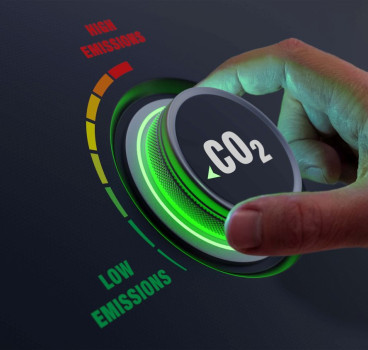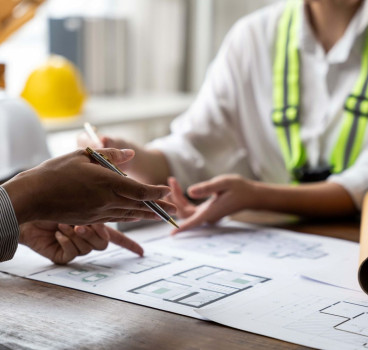Sustainability and the art of communicating green initiatives
In an era where environmental consciousness and responsible business practices are in the spotlight, sustainability has evolved from a mere buzzword to a driving force that shapes consumer preferences and business decisions, writes Editor John Ridgeway.
Within the construction industry, embracing sustainable practices isn't just a matter of ethical obligation - it's also a strategic imperative that can set construction companies apart and attract environmentally conscious clients. However, in a world that has become attuned to greenwashing, authenticity is paramount.
The construction industry, long associated with substantial resource consumption and environmental impact, has undergone a transformative shift towards sustainability. From green building materials and energy-efficient designs to waste reduction strategies and eco-friendly construction practices, the spectrum of sustainable initiatives has expanded exponentially.
This paradigm shift is fuelled not only by regulatory requirements but also by an increasing demand from environmentally conscious customers who seek construction partners that share their values.
In the pursuit of attracting eco-conscious customers, construction companies must tread carefully to avoid falling into the trap of greenwashing. Greenwashing refers to the practice of making exaggerated or misleading claims about a company's environmental practices to create a façade of sustainability. It's a perilous path that not only erodes trust but also exposes businesses to public scrutiny.
The essence of effective sustainability marketing lies in authenticity. Clients are discerning and well-informed; they can spot insincere claims from a mile away. Thus, any sustainability message communicated must be backed by tangible actions, measurable results, and a genuine commitment to reducing environmental impact. Authenticity is the foundation upon which a successful sustainability marketing strategy must be built.
Sustainability isn't just a checkbox - it's a narrative that construction companies can weave into their brand identity. A compelling sustainability story is one that resonates with clients on a deeper level. It goes beyond the technical aspects of sustainable practices and delves into the why—the motivation behind the commitment to sustainability.
Perhaps that motivation is a construction company's dedication to minimising a carbon footprint through innovative building materials or its role in revitalising communities through sustainable urban development. By telling a story that connects sustainability initiatives to broader social and environmental goals, construction companies can create a narrative that engages clients emotionally, making them stakeholders in a shared vision.
Transparency is the cornerstone of effective sustainability communication. Customers want to see real evidence of progress and impact. This could manifest through clear metrics such as reduced energy consumption, lowered greenhouse gas emissions, or the use of reclaimed materials. Quantifiable data not only demonstrates a construction company's commitment but also empowers customers to make informed decisions based on real-world outcomes.
Moreover, tangibility plays a vital role in sustainability marketing. Rather than relying solely on written descriptions, consider utilising visual tools like infographics, videos, and before-and-after images to illustrate the transformative journey of sustainable projects. These visuals can effectively convey the positive impact of sustainable practices, resonating with customers in a manner that words alone might not achieve.
Educating customers about sustainability goes hand in hand with marketing initiatives. Many clients are willing to embrace sustainable practices, but they may lack the knowledge or understanding to make informed choices. Construction companies can position themselves as educators, providing insights into the benefits of different sustainable materials, energy-efficient designs, and innovative technologies.
Webinars, workshops, and informative blog posts are avenues through which construction companies can empower clients with the information they need to align their preferences with sustainable solutions. This not only enhances customer confidence in their choices but also establishes the construction company as a knowledgeable partner in their sustainability journey.
Collaboration often breeds innovation. Construction companies can leverage sustainability marketing to invite customers to be active participants in the creation of environmentally conscious solutions. By involving customers in discussions about sustainable design, energy-efficient technologies, and eco-friendly materials, construction companies tap into their expertise and perspectives, creating a collaborative space for ideas and innovation.
Sustainability marketing is most effective when it's not merely a compartmentalised strategy but an intrinsic part of a company's ethos. Sustainability should be deeply embedded in the company culture and operations. From the construction site to the boardroom, commitment to sustainability should be evident in every facet of the company's activities. Customers are more likely to be drawn to companies that demonstrate a comprehensive commitment to sustainability rather than those that view it as a marketing gimmick.
In a landscape where sustainability is both a responsibility and an opportunity, construction companies can carve a distinct niche by effectively marketing their green initiatives. Authenticity is the guiding principle that underpins this journey.
A commitment to tangible actions, transparent communication, and a meaningful narrative transforms sustainability from a buzzword into a driving force that resonates with customers who seek to partner with businesses that share their values. Sustainability marketing, when rooted in authenticity, has the power to transform construction companies from providers of services into partners in a collective effort to build a greener future.
Additional Blogs

Drones in Construction: Are UAVs the Future of Site Inspections?
Technology integration is necessary for construction companies to survive in this evolving industry. Unmanned aerial vehicles or UAVs, such as drones, are poised to be the next big thing in site...
Read moreThe unseen carbon cost of late design changes
There is a particular moment in almost every project when someone says, “It’s only a small change.” A wall shifts half a metre. A grid tightens. A plant room grows. A façade is reconfigured to...
Read more

When compliance becomes the enemy of good design
There is a particular comfort in compliance. It comes in the form of certificates, checklists and sign-offs. It reassures clients, satisfies insurers and protects professionals from liability. In an...
Read more